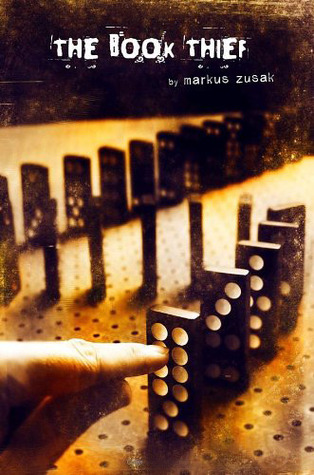Dear New Novelist,
Getting paid to write sounds amazing, doesn't it? That's a lot of our goals. Whether it's enough to live and work full-time as a writer or just enough to buy a pizza and maybe a celebratory milkshake, the fact is that we want to get paid to do something we love. So if someone came to you with an offer to write for them, for pay, why would you ever say no?
I got an email this morning. Right to my inbox. In summation, it said, "Write a blog post for us, and we'll pay you."
I should be excited! I've never been paid to write.
And I will continue to not be. Because while the idea of money for words is lovely, sometimes the cost isn't worth it.
To expand on that email's summation, the sender is a foreign wedding and prom dress website. They want me to write them a blog post, in German, advertising them, and if I make the post, share their banner, and advertise the blog post on all my social medias, they'll pay me $30.
I could be living out of a paper bag and I still would not take that offer. Because, new novelist, pay is not always worth it.
It's not worth surrendering your integrity or going against what you stand for if they want to pay you to write something you would normally never say yourself but must portray it as your own thoughts.
It's not worth loss of reputation and dependability if they want to pay you to become a walking spam advertisement.
It's DEFINITELY not worth the risk of malware to your readers or you.
Honestly, not worth learning another language either, in this case. I know, like, three phrases in German: Ich bin ein Berliner, schmetterling, and schadenfreude. And you know, some random stuff about Heil and Fuhrers and a few insults I picked up in The Book Thief.
I am not even going to trouble myself with writing them a response, unless they're actually reading this blog, in which case, my answer is "No." No, I will not be your shill. No, I will not destroy my reputation across all my social media platforms for you. No, I will not waste my time with you more than sharing a few laughs with my friends at your audacity.
But thanks for the inspiration for the blog post.
Pages
▼
Friday, January 20, 2017
Wednesday, January 11, 2017
Reading for Research: Suddenly, I Understand Omni
 In the latter quarter of 2016, I was slowly working my way through The Book Thief by Markus Zusak, sneaking a chapter here and there until a road trip encouraged me to finish. The chapters are short, so they were easy to sneak, and by the time the road trip started for me, the book was too engaging to put down like I had before.
In the latter quarter of 2016, I was slowly working my way through The Book Thief by Markus Zusak, sneaking a chapter here and there until a road trip encouraged me to finish. The chapters are short, so they were easy to sneak, and by the time the road trip started for me, the book was too engaging to put down like I had before.If you don't know about The Book Thief (I know, you probably do, but I keep running into people who don't, so just in case. Bear with me. I'll be brief), it's a story about a young German girl living in Nazi Germany at the start of WWII. As the title implies, she steals books. The interesting this is, the story's told from the perspective of Death. It's used as a framing device, a character who has seen many stories, met many people, and is pretty much the world's greatest neutral force, becoming fascinated with this one girl he keeps encountering.
While I was trying to think of how to explain this choice of framing device to someone to whom I recommended the book, I realized it: this is how you write omniscient POV.
You don't know how long I've been trying to understand omni POV. I've tried studying it and failed. I've grasped the idea of it, but the overall puzzle eluded me. I had the pieces, but I couldn't put them together in a way that made sense. "There's a narrator and they know everything" just didn't work for me, especially as someone who generally writes in close perspective. But it finally clicked here, because there's literally a narrator instead of just some unnamed force telling a story. Imagine Death as a storyteller. If you sat down in front of them and asked for a story, what you will be told is Omni. Someone who knows everyone, who knows their stories and what happened, but maybe not necessarily their feelings. I actually get it now. I just needed that skeletal face to put that damn puzzle together. Thank you, Mr. Zusak.
